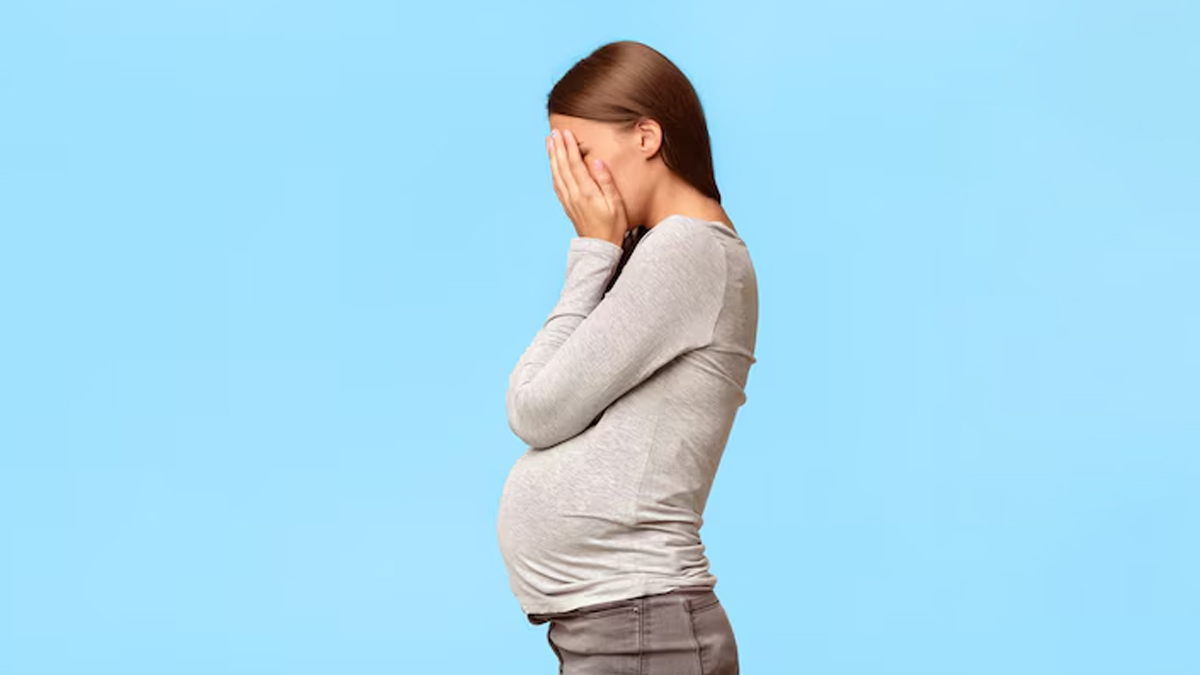
Pregnancy is a time of excitement and anticipation, but it can also bring stress and anxiety. While some stress is a normal part of life, excessive or prolonged stress during pregnancy can impact both the mother and the baby. Maternal stress can influence fetal development, affecting the baby’s brain, immune system, and long-term health. Understanding these effects and learning how to manage stress can help ensure a healthier pregnancy and baby.
Table of Content:-
OnlyMyHealth team spoke to Dr Pooja C Thukral, Senior Consultant, Gynaecologist, Cloudnine Group of Hospitals, Faridabad.
How Stress Affects Foetal Development
When a mother experiences stress, her body releases stress hormones such as cortisol and adrenaline. According to Dr Thukral, “While these hormones help the body cope with challenges in the short term, prolonged stress can negatively impact fetal development.”

1. Brain Development
High levels of maternal stress hormones may alter the baby’s brain structure and function. Studies suggest that babies exposed to high stress in the womb may develop increased sensitivity to stress later in life, making them more prone to anxiety and emotional difficulties.
2. Preterm Birth and Low Birth Weight
Chronic stress has been linked to premature delivery and lower birth weight. “Babies born too early or with low birth weight may face developmental delays, difficulty in feeding, and a higher risk of health complications,” Dr Thukral said.
3. Weakened Immune System
"Stress can suppress the maternal immune system, increasing the risk of infections that may affect fetal health," explains Dr Thukral. A weakened immune system in the mother can lead to complications such as intrauterine infections, which may impact the baby’s immune development.
4. Behavioural and Emotional Impact
Babies exposed to excessive maternal stress may show increased irritability after birth and a higher likelihood of developing anxiety, attention disorders, or hyperactivity in childhood. Research indicates that stress exposure in the womb can influence emotional regulation and behaviour later in life.
Causes of Maternal Stress During Pregnancy

Stress during pregnancy can arise from various factors, including:
- Emotional and Psychological Stress: Anxiety about the baby’s health, relationship issues, or financial concerns.
- Physical Stress: Pregnancy-related discomfort, hormonal changes, and sleep disturbances.
- Work-Related Stress: High workloads, job insecurity, or difficulty balancing career and pregnancy.
- Environmental Stress: Exposure to noise, pollution, or unsafe living conditions.
Managing Stress During Pregnancy
Reducing stress is crucial for both maternal well-being and fetal development. Here are some effective strategies:

1. Practice Relaxation Techniques
Deep breathing exercises, meditation, and prenatal yoga can lower stress hormones and promote relaxation. "Guided imagery and progressive muscle relaxation are effective ways to reduce anxiety during pregnancy," suggests Dr Pooja C Thukral.
2. Maintain a Healthy Diet
Eating a balanced diet rich in omega-3 fatty acids, folic acid, magnesium, and vitamin B6 can support brain function and reduce anxiety. “Avoid excessive caffeine and processed foods, which may contribute to stress,” Dr Thukral recommended.
3. Get Regular Exercise
Low-impact exercises like walking, swimming, or stretching can improve mood and reduce tension. Physical activity releases endorphins, which are natural stress relievers.
4. Prioritise Sleep
Sleep deprivation can worsen stress, so aim for 7-9 hours of quality sleep each night. Establish a bedtime routine, limit screen time before bed, and practise good sleep hygiene to improve rest.
5. Seek Emotional Support
Talking to a trusted friend, partner, or counsellor about worries can be beneficial. Joining prenatal support groups can provide reassurance and connection with others facing similar experiences.
6. Time Management and Self-Care
Break tasks into manageable steps and avoid overloading yourself with responsibilities. Engage in activities that bring joy, such as reading, listening to music, or spending time outdoors.
When to Seek Professional Help
While mild stress is a normal part of pregnancy, persistent high-stress levels may require professional intervention. Seek help if you experience:
- Constant anxiety or panic attacks
- Depression or overwhelming sadness
- Difficulty sleeping or eating due to stress
- Feelings of helplessness or isolation
Mental health professionals, including therapists and obstetricians, can provide guidance and coping strategies tailored to your needs.
Conclusion
"Maternal stress can have a significant impact on both the mother and baby, but managing stress through relaxation techniques, a healthy lifestyle, and emotional support can help ensure a healthy pregnancy," says Dr Pooja C Thukral. By taking proactive steps to reduce stress, expectant mothers can create a nurturing environment for their baby’s development. While stress cannot be completely avoided, understanding its effects and adopting stress-management strategies can make a significant difference in promoting a healthy pregnancy and a happy baby.
How we keep this article up to date:
We work with experts and keep a close eye on the latest in health and wellness. Whenever there is a new research or helpful information, we update our articles with accurate and useful advice.
Current Version